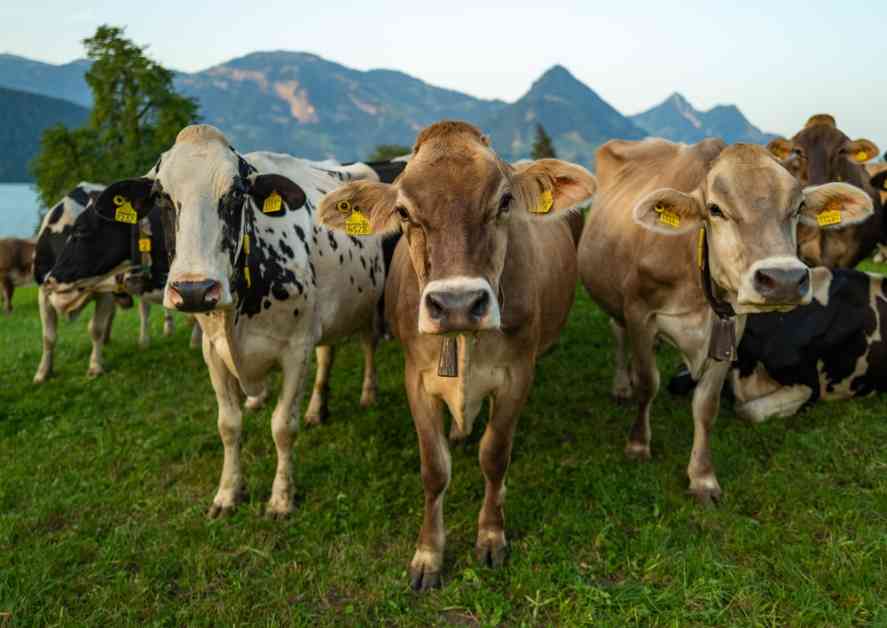Livestock, such as cows and sheep, play a crucial role in providing food for people around the world. However, these animals also contribute significantly to greenhouse gas emissions, with methane being a major component. Methane is a potent greenhouse gas that is produced as livestock digest their fibrous diet. In fact, globally, livestock account for about 14.5 percent of greenhouse gas emissions, more than all the world’s cars and trucks combined.
Reducing methane emissions from livestock is essential in the fight against climate change. While current approaches like improved animal husbandry practices and feed additives can help, they are not enough to make a significant global impact. Scientists are exploring other potential solutions, such as breeding low-methane livestock and modifying the microbes in their stomachs that produce methane. These methods, though requiring more research, have the potential to be widely implemented and have a significant impact in the long run.
One of the main challenges in reducing methane emissions from livestock is that methane is a natural byproduct of the digestive process in grazing animals. Microbes in the rumen, the largest stomach of a cow, break down fibrous food and produce methane as a result. This methane is then released into the atmosphere through belching or exhalation. To address this issue, researchers are looking into ways to alter the microbial composition in the rumen to minimize methane production.
Another approach to reducing methane emissions is through synthetic feed additives like 3-nitrooxypropanol (3-NOP), which has shown promising results in reducing methane emissions by more than 30 percent. However, the practicality and cost-effectiveness of such additives for farmers remain a concern. Breeding animals for lower methane emissions is also being explored as a long-term solution, as animals with the same diet can vary significantly in their methane output.
Researchers are also investigating the possibility of vaccinating livestock against methanogenic microbes to reduce methane production. This approach could potentially be more practical and widely accepted by farmers, as animals would only need occasional booster shots. However, more research is needed to determine the effectiveness of this method in live animals.
Ultimately, reducing methane emissions from livestock is crucial in mitigating climate change. While significant progress has been made in developing potential solutions, more research and innovation are needed to translate these findings into practical and effective strategies for reducing methane emissions from grazing animals. By addressing this issue, we can take a significant step towards building a more sustainable and environmentally friendly food system for the future.






